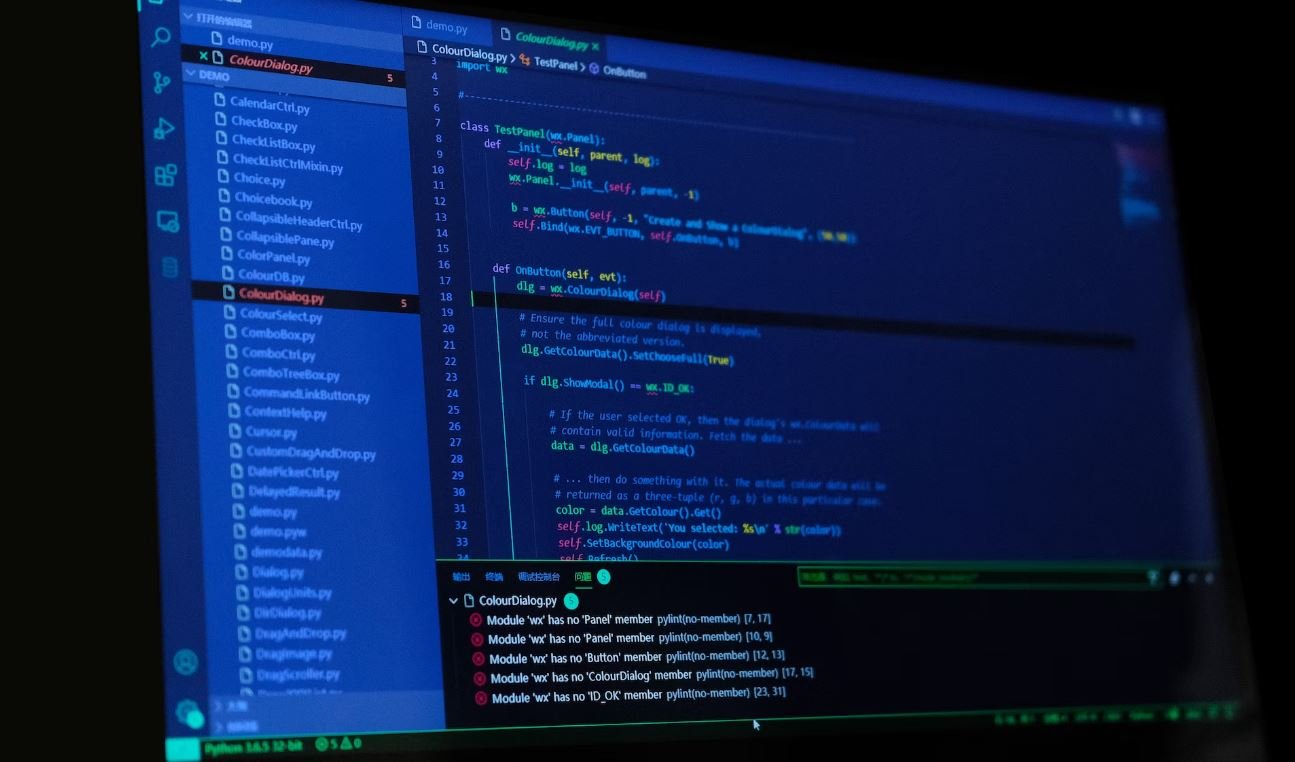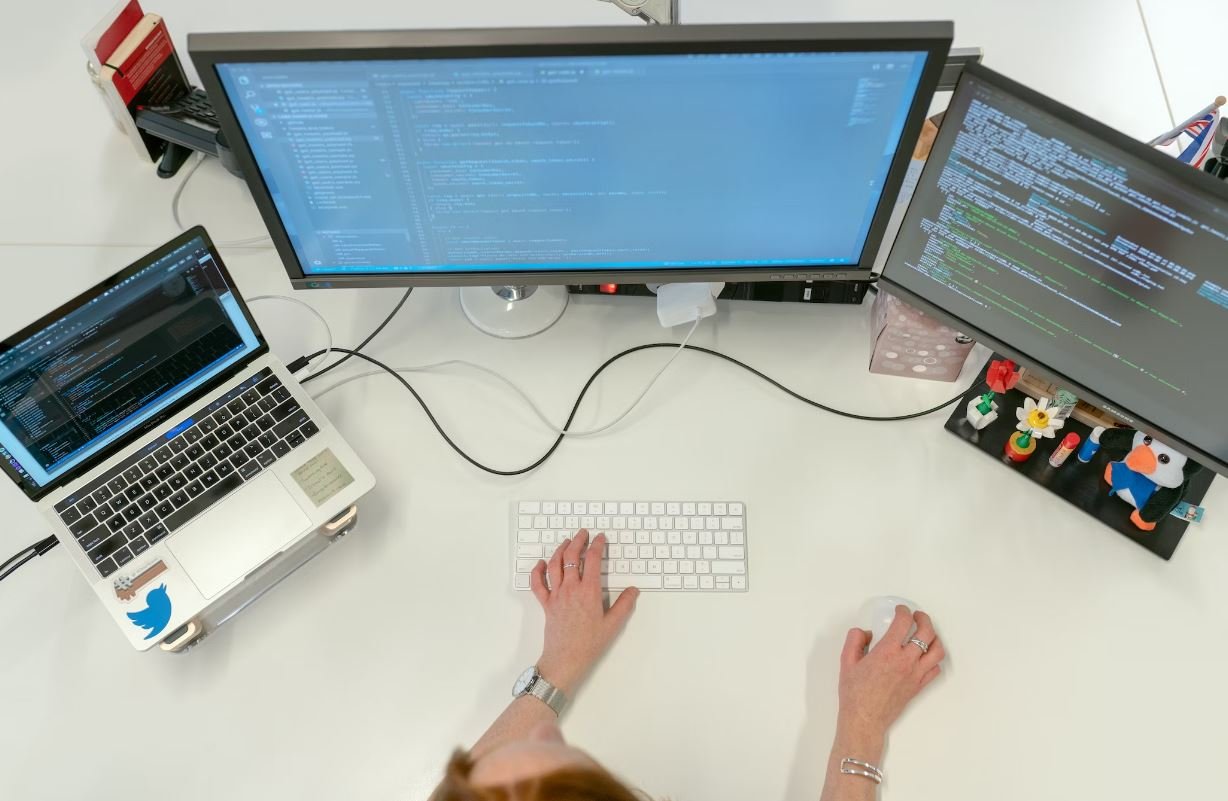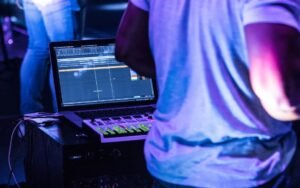Dubai Metro
The Dubai Metro is a state-of-the-art metro system that serves the city of Dubai, United Arab Emirates. It is one of the most advanced and modern transportation networks in the world, providing a convenient and efficient way for residents and tourists to travel around the city.
Key Takeaways:
- The Dubai Metro is a modern and advanced transportation network in Dubai.
- It offers convenient and efficient travel for residents and tourists.
- The metro system consists of two lines, Red and Green, covering significant parts of the city.
- Integration with other modes of transportation makes it easy to access major landmarks and attractions.
- The Dubai Metro is known for its safety, cleanliness, and excellent service.
The Dubai Metro consists of two main lines, the Red Line and the Green Line, which together cover significant parts of the city. The Red Line runs along Sheikh Zayed Road, connecting major business districts, residential areas, and popular attractions. On the other hand, the Green Line provides connectivity to important areas such as Dubai Healthcare City, Deira, and Dubai International Airport. Both lines intersect at multiple transfer stations, allowing passengers to easily switch between lines and reach their desired destinations.
With over 50 stations spread across Dubai, the Dubai Metro offers unmatched connectivity throughout the city.
Benefits and Features
The Dubai Metro offers a range of benefits and features that make it a popular choice among residents and tourists. Some of the key advantages include:
- Efficient Travel: The metro system is designed to reduce travel time and ease traffic congestion on the roads.
- Advanced Technology: The Dubai Metro utilizes cutting-edge technology to ensure smooth operations and enhance passenger comfort.
- Accessibility: It provides easy access to major landmarks, attractions, and business centers across the city.
- Environmental Sustainability: The metro system is eco-friendly, promoting a greener and more sustainable mode of transportation.
- Comfort and Safety: The trains are clean, air-conditioned, and equipped with modern safety features to ensure a comfortable and secure journey for passengers.
The Dubai Metro‘s advanced technology and environmental sustainability contribute to its popularity among residents and tourists.
Route Map and Expansion Plans
| Line | Length (km) | Stations |
|---|---|---|
| Red Line | 52.1 | 29 |
| Green Line | 22.5 | 20 |
The Dubai Metro has seen continuous expansion since its launch. The network has plans for future extensions and new lines expected to serve additional areas of the city. These expansion plans aim to further improve connectivity and provide more options for commuters.
The Dubai Metro‘s expansion plans will ensure enhanced connectivity and accessibility for residents and tourists.
Fare Structure
The Dubai Metro operates on a zone-based fare system, where the ticket price depends on the number of zones crossed during the journey. Passengers can choose between using a Nol card (a reusable smart card) or purchasing single journey tickets from the vending machines at the stations.
The zone-based fare system of the Dubai Metro provides flexibility and convenience for passengers.
Conclusion
In summary, the Dubai Metro is a state-of-the-art metro system that offers convenient and efficient travel for residents and tourists in Dubai. The network’s advanced technology, extensive coverage, and commitment to safety and sustainability make it a preferred mode of transportation for many. With continuous expansion plans and ongoing improvements, the Dubai Metro will continue to play a vital role in shaping the city’s transportation landscape.

Common Misconceptions
Misconception #1: Dubai Metro is only for tourists
One of the most common misconceptions about the Dubai Metro is that it is primarily designed for tourists. While it is true that the metro is popular with tourists who want to explore the city, it is also used extensively by residents for their daily commutes. In fact, the metro system has been developed to meet the growing transport needs of the city’s population.
- The Dubai Metro serves as an affordable and convenient mode of transportation for residents.
- It connects various parts of the city, making it an essential commuting option for locals.
- The metro system plays a crucial role in reducing the traffic congestion on Dubai’s roads.
Misconception #2: Dubai Metro is not safe
Another common misconception is that the Dubai Metro is not a safe mode of transportation. However, this is far from the truth. The metro system in Dubai operates at high safety standards and is equipped with various security measures to ensure the well-being of its passengers.
- Security personnel are present at every station to maintain order and address any safety concerns.
- CCTV cameras are installed throughout the metro system to monitor activities and ensure passenger safety.
- Emergency buttons and help points are available in case of any emergency situations.
Misconception #3: Dubai Metro is not reliable
Some individuals mistakenly believe that the Dubai Metro is not a reliable mode of transportation and that it experiences frequent delays or breakdowns. However, the Dubai Metro has a highly efficient operation system that ensures reliable transportation for its passengers.
- The metro system follows a strict schedule, with trains running at regular intervals throughout the day.
- Delays or disruptions are usually communicated to passengers in advance through announcements and social media updates.
- The Dubai Metro consistently achieves high punctuality rates, ensuring that passengers reach their destinations on time.
Misconception #4: Dubai Metro is not accessible for people with disabilities
Another misconception is that the Dubai Metro is not accessible for people with disabilities. However, the metro system in Dubai is designed to be inclusive and provides accessibility features for individuals with disabilities.
- Every station is equipped with elevators and ramps to facilitate easy access for wheelchair users.
- Specialized areas are designated for people with disabilities on the trains, ensuring their comfort and safety.
- Staff members are trained to assist passengers with disabilities and provide them with the necessary support.
Misconception #5: Dubai Metro is only for big distances
Many people believe that the Dubai Metro is mainly useful for long-distance travel within the city. However, the metro system is designed to serve both short and long commutes, making it a versatile transportation option.
- The metro system covers a vast network, allowing passengers to easily navigate between various neighborhoods and areas.
- It is a convenient mode of transportation for shorter trips within a specific area, helping to reduce travel time and costs.
- The Dubai Metro integrates well with other forms of public transportation, providing seamless connectivity for passengers across the city.

Dubai Metro
Dubai Metro is a rapid transit rail network in Dubai, United Arab Emirates. It is one of the most modern and advanced public transportation systems in the world. With its sleek design, efficient operations, and impressive statistics, the Dubai Metro has revolutionized the way people travel within the city. The following tables showcase some fascinating facts and figures about this remarkable infrastructure.
Passenger Capacity of the Dubai Metro
The Dubai Metro has been designed to accommodate a large number of passengers in its trains. Here is a breakdown of the passenger capacity:
| Train Category | Seats | Standing Capacity (Peak) | Total Capacity (Peak) |
|---|---|---|---|
| Express (Red Line) | 76 | 72 | 148 |
| Standard (Red & Green Lines) | 90 | 178 | 268 |
| Women and Children Only (Pink) | 90 | 178 | 268 |
Number of Stations
The Dubai Metro covers an extensive network of stations throughout the city. Here is the breakdown of the number of stations on each line:
| Line | Number of Stations |
|---|---|
| Red Line | 29 |
| Green Line | 20 |
| Expo Line (under construction) | 7 |
Length of Lines
The Dubai Metro boasts impressive coverage with its extensive line lengths. Here are the lengths of the different lines:
| Line | Length (km) |
|---|---|
| Red Line | 52.1 |
| Green Line | 22.5 |
| Expo Line (upon completion) | 15 |
Annual Ridership
Since its inception, the Dubai Metro has proven to be a popular means of transport in the city. Here is the annual ridership in millions:
| Year | Ridership (Millions) |
|---|---|
| 2010 | 68 |
| 2015 | 164 |
| 2020 | 203 |
The World’s Longest Automated Train System
Dubai Metro holds the record for being the world’s longest automated train system. It covers an impressive distance, as shown in the table below:
| Record | Length (km) |
|---|---|
| World Record | 75 |
| Middle East Record | 120 |
| UAE Record | 120 |
Daily Operational Timings
The Dubai Metro operates at different times on weekdays and weekends. The table below illustrates the daily operational hours:
| Day of the Week | Timings |
|---|---|
| Sunday to Wednesday | 5:00 AM – 12:00 AM |
| Thursday | 5:00 AM – 1:00 AM |
| Friday | 10:00 AM – 1:00 AM |
| Saturday | 5:00 AM – 12:00 AM |
Total Number of Trains
To serve its vast network, the Dubai Metro has a considerable fleet of trains. Here is the total number of trains in operation:
| Line | Number of Trains |
|---|---|
| Red Line | 87 |
| Green Line | 50 |
| Expo Line (upon completion) | 50 |
Public-Private Partnership
The Dubai Metro project was developed as a public-private partnership to ensure efficient delivery and management. Here is the distribution of ownership:
| Ownership | Entity |
|---|---|
| RTA (Government) | 30% |
| Private Stakeholders | 70% |
Integration with Other Modes of Transport
The Dubai Metro plays a crucial role in integrating various modes of transport to ensure seamless commuting. Here are the connections facilitated by the metro:
| Network Connections | Transport Integration |
|---|---|
| Bus | 72 |
| Taxi | 6 |
| Tram | 1 |
Conclusion
The Dubai Metro has revolutionized the concept of public transportation, offering a fast, efficient, and technologically advanced system. With its spacious trains, extensive network, and impressive ridership, the metro has become an integral part of life in Dubai. The continuous expansion of the network and integration with other modes of transport further enhance its functionality and convenience for residents and visitors. The Dubai Metro‘s success is a testament to the city’s commitment to innovation and sustainability in urban mobility.
Frequently Asked Questions
How many lines does the Dubai Metro have?
What are the operating hours of the Dubai Metro?
How much does it cost to ride the Dubai Metro?
Are tickets interchangeable between the Red Line and the Green Line?
Can I use a Nol card to pay for the Dubai Metro?
Are there separate cabins for women and children on the Dubai Metro?
Are there any discounted fares available for frequent travelers?
Can I bring luggage with me on the Dubai Metro?
How often do the trains run on the Dubai Metro?
Are there any restrictions on food and drinks on the Dubai Metro?




